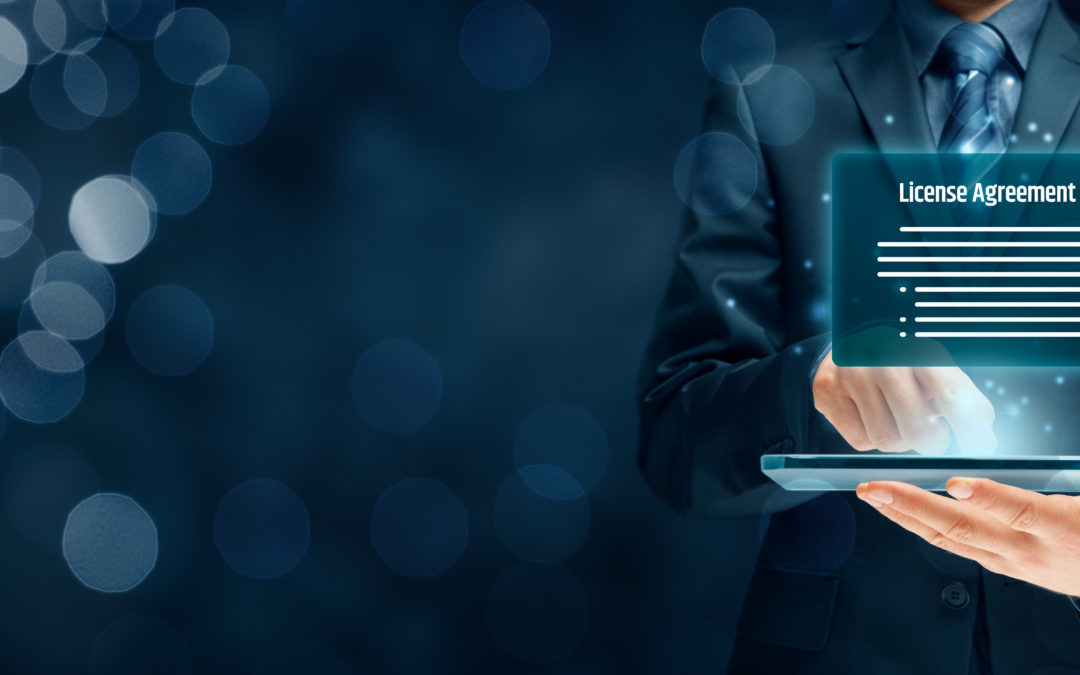Short & Simple Open Source Software Licenses
As part of our series on open source software licenses, we have already discussed the GNU General Public License, the GNU Lesser GPL, and the Apache License. This time, we will discuss two other popular open source software licenses that are much shorter and simpler. However, while these licenses are arguably the most unrestricted licenses available, they can still be important in protecting you from legal liability.
Both the MIT License and the BSD License discussed below, like the Apache License, do not impose any of the “copyleft” tactics found in the GPL and LGPL that restrict use of the software to only other open source and freely distributable software. Like Apache, MIT and BSD do not require the source to be distributed with the software, but unlike Apache, GPL, and LGPL, the MIT and BSD Licenses do not require notation of modifications or prevent people from acquiring patents based on your original work.
The BSD and MIT Licenses do still protect you by disclaiming warranties and limiting liability, as well as make sure you are credited for the original work.
BSD License
The newer BSD Licenses are short and come in two varieties, a three-clause or two-clause version. The three-clause version is seen below and the two-clause version simply eliminates clause three to allow for use of the copyright holder’s name in advertising of derivative works. If you do not wish to have your name associated with such works, you should use the three clause version and also avoid the MIT License below, since it does not offer such limitation.
Copyright (c) <YEAR>, <OWNER> All rights reserved.
Redistribution and use in source and binary forms, with or without modification, are permitted provided that the following conditions are met:
1. Redistributions of source code must retain the above copyright notice, this list of conditions and the following disclaimer.
2. Redistributions in binary form must reproduce the above copyright notice, this list of conditions and the following disclaimer in the documentation and/or other materials provided with the distribution.
3. Neither the name of the copyright holder nor the names of its contributors may be used to endorse or promote products derived from this software without specific prior written permission.
THIS SOFTWARE IS PROVIDED BY THE COPYRIGHT HOLDERS AND CONTRIBUTORS “AS IS” AND ANY EXPRESS OR IMPLIED WARRANTIES, INCLUDING, BUT NOT LIMITED TO, THE IMPLIED WARRANTIES OF MERCHANTABILITY AND FITNESS FOR A PARTICULAR PURPOSE ARE DISCLAIMED. IN NO EVENT SHALL THE COPYRIGHT HOLDER OR CONTRIBUTORS BE LIABLE FOR ANY DIRECT, INDIRECT, INCIDENTAL, SPECIAL, EXEMPLARY, OR CONSEQUENTIAL DAMAGES (INCLUDING, BUT NOT LIMITED TO, PROCUREMENT OF SUBSTITUTE GOODS OR SERVICES; LOSS OF USE, DATA, OR PROFITS; OR BUSINESS INTERRUPTION) HOWEVER CAUSED AND ON ANY THEORY OF LIABILITY, WHETHER IN CONTRACT, STRICT LIABILITY, OR TORT (INCLUDING NEGLIGENCE OR OTHERWISE) ARISING IN ANY WAY OUT OF THE USE OF THIS SOFTWARE, EVEN IF ADVISED OF THE POSSIBILITY OF SUCH DAMAGE.
The MIT License (MIT)
The MIT License is an even shorter license, that is very similar to the two-clause version of BSD. The entirety of this license is seen below.
Copyright (c) <year> <copyright holders>
Permission is hereby granted, free of charge, to any person obtaining a copy of this software and associated documentation files (the “Software”), to deal in the Software without restriction, including without limitation the rights to use, copy, modify, merge, publish, distribute, sublicense, and/or sell copies of the Software, and to permit persons to whom the Software is furnished to do so, subject to the following conditions:
The above copyright notice and this permission notice shall be included in all copies or substantial portions of the Software.
THE SOFTWARE IS PROVIDED “AS IS”, WITHOUT WARRANTY OF ANY KIND, EXPRESS OR IMPLIED, INCLUDING BUT NOT LIMITED TO THE WARRANTIES OF MERCHANTABILITY, FITNESS FOR A PARTICULAR PURPOSE AND NONINFRINGEMENT. IN NO EVENT SHALL THE AUTHORS OR COPYRIGHT HOLDERS BE LIABLE FOR ANY CLAIM, DAMAGES OR OTHER LIABILITY, WHETHER IN AN ACTION OF CONTRACT, TORT OR OTHERWISE, ARISING FROM, OUT OF OR IN CONNECTION WITH THE SOFTWARE OR THE USE OR OTHER DEALINGS IN THE SOFTWARE.
If you have any questions about deciding on a license or creating specialized license for your software, contact the Law Office of E.C. Lewis, PC, home of your Denver Small Business Lawyer, Elizabeth Lewis at 720-258-6647 or email her at elizabeth.lewis@eclewis.com.



